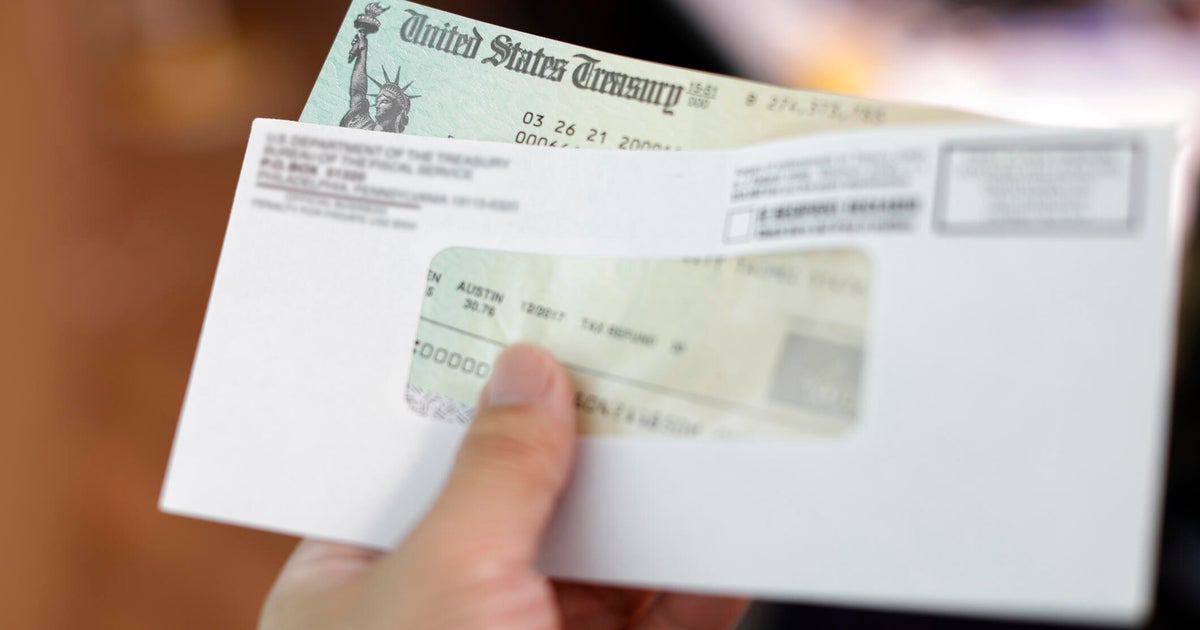Americans are worried about smaller tax refunds. They may have reason for concern.
Taxpayers this year have plenty of worries about their tax refunds, including fears they may get a smaller check than usual from the IRS. Based on early data from the tax agency, it turns out there may be some justification for the dread.
The tax agency recently said the average refund is about $2,300, according to data as of February 11. Last year, the average refund was about $2,800.
To be sure, there's a caveat about this early data since tens of millions of refunds have yet to be issued. That means the typical tax refund could change and even grow as the season progresses, as taxpayers have until April 18 to file their federal returns. In 2021, the IRS received 169 million individual returns and issued 129 million refunds, according to agency's data. So far in 2022, the IRS has issued more than 4 million refunds.
A tax refund is often a family's biggest check of the year, with people using the money to pay down debt, to bolster their savings or to cover everyday expenses. But consumers are expressing anxiety about their refunds this year amid a backdrop of rising inflation and pandemic-era tax code changes that could impact the size of their checks.
For instance, the enhanced Child Tax Credit (CTC) expanded the amount that parents receive, but half of the money was sent in monthly payments during 2021. The remaining half — either $1,500 for older children or $1,800 for younger kids — can be claimed on this year's tax returns. That's less than the $2,000 families claimed on their returns in prior years for the CTC, which could lead to a smaller refund, tax experts say.
Consumers are "worried that their refund may be delayed, it may be smaller," said Ted Rossman, senior industry analyst at Bankrate. "We loved getting those advanced CTC payments last year, but that may mean a smaller refund as a result."
Almost 1 in 3 taxpayers sad they're concerned their refund could be smaller this year compared with prior years, according to a survey from Bankrate. About 1 in 4 taxpayers are worried their refund could be delayed — perhaps not surprising given that the Treasury Department warned in January that this tax season will be a challenge as the agency is still dealing with a backlog of returns from 2021.
"There are many households and families who count on that refund, especially those at the lower end of the income spectrum, so a smaller refund is definitely a concern," said Joe Buhrmann, a CFP and senior financial planning consultant at eMoney Advisor.
To be sure, every taxpayer's situation is unique, with each individual tax refund based on a number of factors, including income, deductions, tax credits and withholding during the year. Because the average tax refund is lower so far than in the prior tax year, that doesn't necessarily mean that a taxpayer's individual check will decline this year.
Other reasons for smaller refunds
Aside from the Child Tax Credit, there are some other reasons why some taxpayers may see smaller returns this year, Buhrmann said. One of those is tied to the federal government's freeze on student loan repayments.
"The paused student loan repayment has been very positive and the relief was nice, but at tax time you aren't writing off any student loan interest," Buhrmann noted.
Under tax law, people can deduct up to $2,500 of student loan interest on their taxes. But without paying any interest, that deduction isn't a possibility. Deductions lower an individual's taxable income, which means not having the tax deduction could result in a smaller tax refund.
Other taxpayers may have received unemployment aid, and if they didn't have taxes withheld from those payments, they will have to pay up when they file their taxes, which could also lower their refunds. Other people who got a new job may not have withheld enough from their paychecks and could get a surprise at tax time.
"The tax code is a little bit of a black box — unless you go out and use a withholding calculator through your employer, you can really get a nasty surprise come tax filing season when you actually punch in all the numbers," Buhrmann said.
Where's my refund?
Most Americans should get their refunds within 21 days of filing, according to the IRS. But there are a few issues that could hold up a tax refund, the agency has said.
First, the IRS is urging taxpayers to file electronically and ask for direct deposit, since that will speed processing. (Paper returns must be dealt with by hand by agency workers, and that adds to the amount of time required to process a return.)
But some tax credits could also slow processing. People who claim the Child Tax Credit or Earned Income Tax Credit may face a longer wait because of anti-fraud measures. The IRS recently said people who claimed those credits should see their refunds land in their bank accounts by March 1.
Taxpayers can check the status of their refund on the IRS site by clicking "Where's My Refund?" under the Refunds tab. People will need to know their Social Security number or their Individual Taxpayer Identification Number, their filing status (such as married filing jointly) and their exact refund amount.
The IRS says people can start checking the status of their refund within 24 hours after an electronically filed return is received by the agency, or four weeks after a taxpayer mails a paper return. The tool will provide information about three phases of processing: Alerting the taxpayer when their return is received, when their refund is approved and when the refund is sent.
Filing in February
The largest share of taxpayers — 44% — plan to file their taxes in February, Bankrate found. Another 25% said they'll file in March, while an additional 16% will wait until April. The remaining tax payers surveyed by Bankrate said they either didn't know when they would file, or planned to do so after this year's April 18 federal deadline.
Getting a refund can provide a dose of financial relief to taxpayers, but almost one-third are worried that the money won't go as far this year due to rising inflation, Bankrate found. Inflation is surging at its fastest pace in 40 years, impacting everything from groceries to gasoline. And Russia's attack on Ukraine is likely to further push up prices of fuel and other commodities in the U.S., experts say.
Higher costs are impacting all consumers, but middle-class households are facing the biggest pinch, a recent analysis from Wells Fargo found. That's because middle-class consumers spend more on used vehicles, which have sharply risen in price, compared with wealthy households, who tend to buy new cars. Middle-class consumers also spend more on gasoline than low-income consumers, the study found.
"Many have been impacted by rising inflation whether that's rent or utilities, and certainly at the grocery store," Buhrmann said. "That refund that you are counting on is going to sting a little bit if it's smaller or if you didn't withhold enough."



